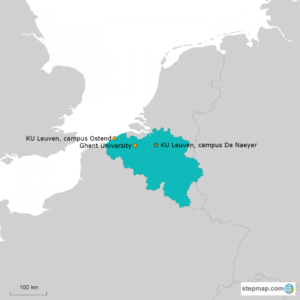ReciDigest
Intervening in the anaerobic digestion process to achieve a higher biogas production efficiency (more biogas per tonne input into the digester) is one of the primary measures to reduce the cost price of biogas production, to further expand the biogas sector and to stimulate renewable energy production through biogas. ReciDigest investigates how the total conversion potential of digestable organic material during anaerobic digestion can be increased by applying innovative disintegration and recirculation techniques. By applying ultrasonic technology or oxidation techniques (ozone and hydrogen peroxide) on the digestate, the remaining organic fraction of the digestate will be converted into anaerobically biodegradable molecules. By then returning the digestate to the digester, this disintegrated stream becomes a 'secondary feed', as a result of which a higher conversion of the organic material from the input stream is achieved. Inhibition by ammonia-nitrogen is also addressed by a selective or non-selective removal of ammonia in the digestate recirculation.
The target groups of this research project are primarily technology providers who design and build biogas installations, environmental consulting bureaus, suppliers of ultrasonic technology and oxidation technologies (ozone, AOP, ...), waste water treatment companies, end users (companies that possess biogas installations and who wish to further optimise them).
ReciDigest is an IWT-Tetra project funded by the Flemish government, and co-financing partners.
Partners
- Ghent University
- KU Leuven
